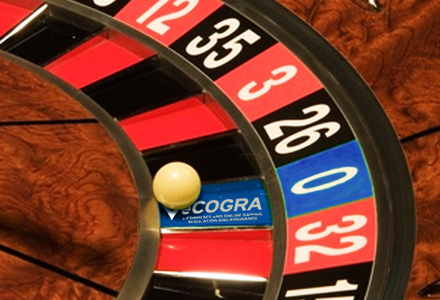 Self-regulation has always been a crucial part of the iGaming industry. Being able to show customers in grey markets that you’re a trustworthy operator safe enough to deposit with has always been a major challenge.
Self-regulation has always been a crucial part of the iGaming industry. Being able to show customers in grey markets that you’re a trustworthy operator safe enough to deposit with has always been a major challenge.
However, it’s now a challenge that fewer operators are facing due to an increase in government regulation, particularly across Europe.
For the first time revenue from regulated iGaming markets in Europe outweighed that from unregulated markets in 2011. This marked a significant trend in the online gambling industry and with the percentage of European regulated market revenue predicted to rise further to 60.1% in 2012 it’s a trend that looks set to continue.
With that in mind many operators and other companies within the iGaming sphere will be adjusting their strategy accordingly. Few however will be adjusting more than independent regulation and auditing organisation eCogra.
Having been around since 2003, eCogra’s profile has increased within the iGaming space as the industry has continued to develop.
Whereas the lion’s share of eCogra’s work used to consist of conducting auditing tests and reports that operators would request themselves, they are finding that their clients now have more concerns.
Andrew Beveridge has been at the helm of eCogra since its founding in 2003. He explains that they have seen a marked change in the requests that they are given by operators.
He says: “In the past we saw a lot more people willing to submit themselves to self-regulation but now everyone’s inundated with the new regulated markets’ requirements.
“It’s pretty tough to go after Spain and Italy to get certified there and then subject yourself to self-regulation. As a result the demand for self-regulation is decreasing.”
Working Together
Beveridge was recently named in Gaming Intelligence’s Hot 50 – a list of the most influential people in gambling. He was certainly in good company with bet365’s Denise Coates, Playtech’s Mor Weizer and Mandalay’s founder Richard Skelhorn also included.
Gaming Intelligence noted that Beveridge has had a “considerable influence on responsible gaming” but added: “It is his handling of the process that developed the CEN (European Committee for Standardisation) Agreement for Responsible Remote Gambling that wins him a place in the Hot 50.”
This agreement is intended to increase the level of security for online players in the European Union and consisted of nine different measures. These measures included protecting vulnerable customers, preventing underage gambling, fair gaming, commitment to customer satisfaction and support.
Coming together to help each other and the industry as a whole is an area that Beveridge feels the industry should be focusing more on.
He explains: “We talk to some competitors but we should be sharing more information and should be promoting one set of common standards which would make life easier for operators and regulators.”
Speaking during ICE, Beveridge reveals that the majority of partnerships that he’s involved in tend to be formed with regulators. He says: “We work more with trade organisations to develop standards with them that can be recognised across Europe.
He adds: “We’ve done a lot of work in the responsible gambling space as well so we work closely with companies like GamCare and Gambling Therapy.”
Almost a year to the day since the Agreement for Responsible Remote Gambling was released, the signs of a more standardized set of regulations across Europe are encouraging. Many more jurisdictions have now either regulated their online gambling markets or are looking to do so.
Self Regulation
Of the measures outlined in Beveridge’s Agreement for Responsible Remote Gambling there are a number which of them which have always been upheld within the industry regardless of government regulation.
Aspects such as the combating of fraudulent and criminal behavior, customer privacy and the safeguarding of information as well as fair gaming and prompt payments are all self-regulated to the point that it’s very difficult to not maintain certain standards and remain successful.
Forums and certain affiliates such as Casinomeister have taken it upon themselves to make players aware of online casinos who should not be trusted.
However Bryan Bailey who is the Casinomeister himself admits that this system doesn’t always work as there are affiliates who will promote what he describes as ‘rogue casinos’.
He explains: “The bad casinos continue to get the traffic and they pay their affiliates, these casinos know they have to pay the affiliates to keep them happy and to keep getting traffic.”
This is an issue which Beveridge is aware of but it hasn’t fazed him in his belief of a fully self-regulated online gambling industry.
He says: “We’ve always been really pushing out the message that it’s a necessity for casinos to be reliable. It’s a given, any industry that has a contentious product, whether it’s tobacco or gaming, it should be self-regulated to some extent. Those issues with gambling are never going to go away.”
In light of these comments from a man who certainly knows what he’s talking about it becomes obvious that there will always be a need for self-regulation. This is apparent regardless of the geographical market that you’re operating in.
So, whether it’s in completely legal European markets or in one of the many grey but potentially lucrative markets across the world, the need to self-regulate will always be present and organizations like eCogra will always be in demand.